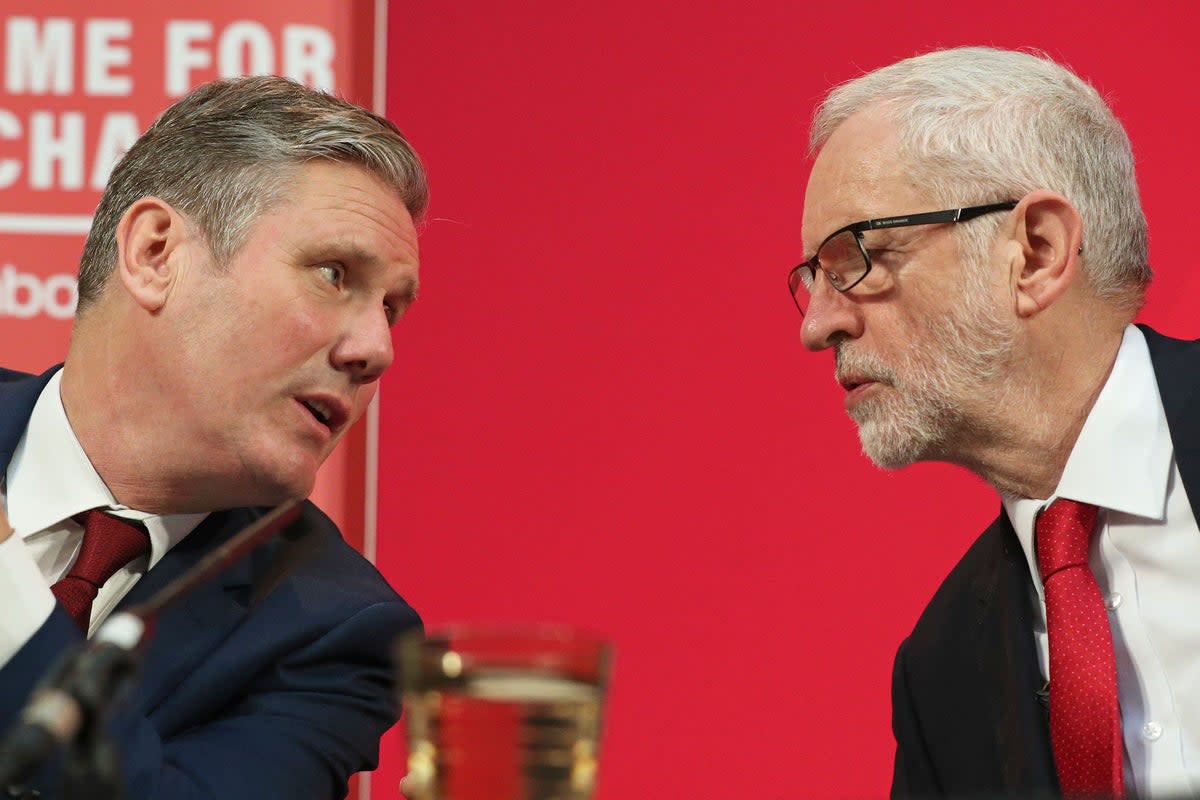OPINION - Keir Starmer is more than just a lucky general

You hear it all the time. And by all the time, I mean very occasionally from a small number of hyper-motivated factionalists on Twitter: any Labour leader would have won the 1997 general election.
This has a superficial logic to it. Labour won that contest by a landslide, so surely a less popular (or more left-wing) leader than Tony Blair would have become prime minister, albeit with perhaps a slightly smaller majority?
Of course, such an assertion is difficult to disprove, given that it didn't happen. But the larger problem is that it overlooks the fact that politics is both dynamic and contingent. The Tories were indeed in meltdown by 1997, mistrusted on the economy thanks to Black Wednesday, deeply divided over Europe and buffeted by constant accusations of sleaze. But the natural party of government only has to be better – or at least less scary – than the alternative.
So my interest was piqued by some recent polling undertaken by More in Common, which asked Britons how they would vote in 2024 if the party leaders were the same as in 2019. Now, as Luke Tryl, More in Common's UK Director freely admits, results of hypothetical polling should be considered more of a vibe check.
(Really, they ought come with one of those graphic health warnings you get on cigarette packets.) It is difficult enough to accurately predict how people will vote in an election three days from now, let alone in an alternative universe. Still, the numbers make for interesting reading. As a reminder, the actual 2019 election results were:
Conservatives: 44 per cent
Labour: 32 per cent
Lib Dems: 12 per cent
SNP: 4 per cent
Brexit Party: 2 per cent
If the parties were led by those same leaders today, the results would be:
Conservatives (led by Boris Johnson): 36 per cent
Labour (led by Jeremy Corbyn): 30 per cent
Lib Dems (led by Jo Swinson): 13 per cent
SNP: (led by Nicola Sturgeon): 3 per cent
Brexit Party: 11 per cent
Luke's observations I think are right on this. First, that Johnson had a better chance of capping the Reform vote than Rishi Sunak has managed. But second, are more importantly, Keir Starmer's political success has been more than dumb luck.
It was far from obvious, back in early 2020, that a party found by the Equality and Human Rights Commission to have engaged in unlawful acts over antisemitism, that had suffered its worst election loss since 1935 and was staring down the barrel of a Rebecca Long Bailey leadership would be on track for a landslide victory in 2024.
Sure, Starmer did not force Johnson to sign a terribly thin trade deal with the EU, or attend parties in Downing Street during national lockdowns, or trick Liz Truss into precipitating a gilts crisis, or prevent Rishi Sunak from ending the junior doctors strike. No one is arguing the Conservative haven't messed things up to an improbable degree. Nor is Starmer responsible for whatever the heck went on in Scotland that is likely to deliver him two dozen or more precious seats north of the border.
But it still requires military grade partisan blinders to conclude that none of the Conservative unforced errors have anything to do with the Labour leader, as if he were some latter-day Forest Gump to whom extraordinary things just seem to happen.

 Yahoo News
Yahoo News 
